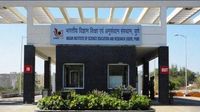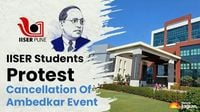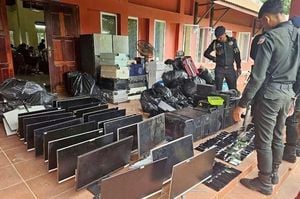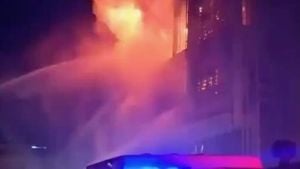PUNE, April 14, 2025 — The Indian Institute of Science Education and Research (IISER), Pune, is facing significant backlash from students after it abruptly cancelled "Muktiparv," a flagship event dedicated to the life and philosophy of Dr. B.R. Ambedkar, which was scheduled to take place on Sunday, April 13. The cancellation has sparked outrage among students, who staged demonstrations on campus demanding accountability from the administration.
The event was intended to coincide with Ambedkar Jayanti, celebrated on April 14 to honor the birth anniversary of the renowned social reformer and the principal architect of India's Constitution. It was designed to feature student presentations, a documentary screening, and a panel discussion focusing on Ambedkar's contributions to science, education, and social justice.
However, the IISER administration cancelled the event following pressure from the Akhil Bharatiya Vidyarthi Parishad (ABVP), a student organization affiliated with the Rashtriya Swayamsevak Sangh (RSS). The administration cited "concerns raised" and a desire "to avoid controversy" as the reasons for their decision, leaving many students feeling disheartened and silenced.
In an official statement, the IISER administration emphasized its commitment to upholding the ideals set forth by Dr. Ambedkar, despite the cancellation. "The institute remains committed to the values of Dr. Babasaheb Ambedkar, especially as we mark his birth anniversary," the statement read. Yet, many students argue that this decision contradicts those very values.
Deepali Salve, one of the invited speakers, criticized the cancellation, stating, "ABVP is a student organization of RSS which works to spread terror in different campuses of India. This opposition came because some fearless women are raising their voice for their community. The country will be run by the Constitution and not by Manusmriti." Salve's comments reflect a broader sentiment among students who feel that the cancellation is an attempt to suppress discussions about caste and social equality.
The tensions leading to the cancellation reportedly escalated after a Pride March organized by the campus Satrangi club on April 6. By April 10, ABVP representatives had approached both the institute's director and local police, demanding the cancellation of the Ambedkar event, claiming that the invited speakers were associated with "Maoists, radicals, and the Tukde Tukde gang." Their press statement expressed fears that the speakers might make statements that could "cause law and order problems" and "divide society based on religion."
Students from IISER, along with various student unions from universities across the country, including JNU, DU, and TISS, have expressed solidarity with the IISER students. They criticize the incident as part of a larger trend of silencing critical thought within academic institutions. Historian Ramachandra Guha tweeted, "Cancelling an Ambedkar event on his birth anniversary is deeply regressive. Institutions should uphold the spirit of inquiry, not fear it."
The IISER student council has voiced deep concern over the administration's handling of the situation. They stated, "Before the cancellation of the event, we as organizers were kept uninformed, and the move taken is completely baseless as no concrete reasons have been stated when asked to the director. The institute's succumbing to such external forces is completely unacceptable, and it sets a perilous precedent for future events happening on campus."
Students argue that educational institutions must serve as safe spaces for critical conversations, especially on topics as foundational as Ambedkar's contributions to Indian democracy. They have demanded that the event be rescheduled and reinstated, along with a formal apology from the administration.
The cancellation of Muktiparv comes amidst a backdrop of rising tensions regarding academic freedom in India. Critics argue that the pressures exerted by organizations like ABVP are indicative of a broader climate of fear that stifles dissent and critical discourse in educational settings. The incident has raised alarms about the ability of academic institutions to uphold their commitments to free speech and inquiry.
As India observes Ambedkar Jayanti, the IISER episode serves as a stark reminder of the ongoing challenges to academic freedom and the necessity of safeguarding spaces for discussion and dissent. The legacy of Dr. B.R. Ambedkar, who championed education as a means of social liberation, underscores the importance of fostering an environment where diverse voices can be heard and respected.
In light of the recent events, students and supporters are calling for a national dialogue on the importance of protecting academic freedom and ensuring that educational institutions remain spaces for robust debate and critical engagement.








